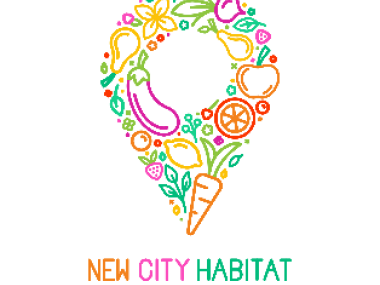NEW CITY HABITAT Conference in Krakow
Edited on
19 November 2020We were all supposed to meet in Krakow for the New City Habitat conference on 25th of September…but Covid-19 did now allow us to do so. Yet, our colleagues from the Polish city were not disheartened about it and put up what we, unanimously at RU:RBAN, considered as one of the best online conferences we’d ever participated in: from the technical smooth running of all activities and speakers’ interventions to the quality and variety of the presentations which managed to catch participants’ attention and concentration throughout the entire duration of the conference. In not so many words: a successful conference from any angle one would look at it.

The President of Krakow, Prof. Jacek Majchrowski, welcomed the 139 participants that connected to the conference and stressed the fact that, to quote his own words, “a deficit in contact with nature contributes to the incidence of depression, weakening of immunity or concentration…”. These words opened the floor to a series of extremely interesting presentations that would “respond”, in a certain way, to the Mr Majchrowski’s plea…
Silvia Cioli, URBACT ad-hoc expert, showed some of the impacts and challenges of urban gardening in our cities: a practice that responds to many needs as it is capable of promoting a sense of community, stimulating social cohesion, experimenting innovative production and management models for public spaces. More information at www.zappataromana.net/en(link is external)
Frank Lohrberg, from the Aachen University in Germany, showed urban planning approaches linking urban agriculture and public space through his presentation “Urban Agriculture in and for public spaces: the hidden champion to create vital and inclusive urban spaces”. More information at www.urban-agriculutre-europe.org/(link is external)
“Urban regeneration resilience through urban farming” was the topic presented by Emanuela Saporito of the Politecnico di Torino, Italy. Urban farming can, in fact, be considered as a “nature- based solution” for urban resilience and it also allows to combine place-making practices with commoning practices. More information at www.ortialti.com/en/(link is external)
The regulation of common goods in relation to community gardens was presented by Fiammetta Curcio, URBACT ad-hoc expert. The City of Rome approved its first Regulation of urban gardens in 2015 and has transferred this knowledge and experience to the six cities of RU:RBAN. More information at www.urbact.eu/rurban
David Rowley, from Heckfield, UK, talked about the biodynamic and organic cultivation in community gardens, highlighting the 5 strategies for the type of cultivation and management of the gardens: conventional, organic, biodynamic, permaculture and the grand combination of all, the holistic management. “The garden will flourish, as will the community but the path that leads there is best walked with as much forethought and advice as possible.”
Marcelline Bonneau from the URBACT Programme gave an insight on the European urban strategies for sustainable food and urban agriculture, with a look at some of the URBACT networks and cities. More information: https://urbact.eu/ , http://resilia-solutions.eu/
Katharina Roth from the Bio Forschung in Vienna, Austria, illustrated the different forms of urban agriculture existing in the Austrian capital city: from rented plots by single citizens to simply grow vegetables for their own consumption to community gardens where vegetables and social cohesion are given the opportunity to flourish. More information: www.garteln-in-wien.at(link is external) , www.bioforschung.at
Landscape architect Joanna Milewska explored the origins of London’s community gardens and their role in a time of crisis such as the Covid-19 pandemic: a healing place, a place to belong and where to create a stronger connection to nature. More information: www.friendsofmeathgardens.org(link is external)
For Alan Holland, from the TWIGS Community Garden in Swindon, UK, community gardens are a therapeutic resource: a place where one can help people and plants to grow and where miracles are happening each day. More information: https://www.thrive.org.uk/ https://twigscommunitygardens.org.uk/
"Garden with class", a program for school gardens, was presented by Bożena Szewczyk-Taranek from the Krakow Municipal Greenspace Authority. The program is addressed to Primary Schools and aims at inspiring snd supporting schools to set up school gardens. More information: https://zzm.krakow.pl/dla-mieszkancow/edukacja/ogrod-z-klasa.html(link is external)
The "Bees in the city-Krakow apiary” Project was presented by Monika Leleń from the Association of Krakow Beekeepers: apiaries have been established on the buildings of the Krakow City Hall and other municipal facilities to change the ecological awareness of the inhabitants and increase the biodiversity of the urban ecosystem. More information: http://www.zrzeszeniepszczelarzykrakowskich.pl/pasieki(link is external)
The time dedicated to presentations closed with Rich McDonald and with his talk about the P-Patch Community Gardens in Seattle, USA. Community gardens need support beyond the passion of gardeners. The key to P-Patch’s success is that, while gardeners best manage day to day activities and programs, institutional support from government or non-governmental organizations provide a foundation upon which gardeners can build. More information: https://www.seattle.gov/neighborhoods/programs-and-services/p-patchcommunity-gardening(link is external)
Participants had the chance to ask questions to all speakers, share their own experiences and take part in dedicated polls presented by the organizing team. Some of the most significant outcomes that all participants agreed upon: urban agriculture should be integrated as a tool of a global strategy to enhance the resilience and sustainability of urban areas and inhabitants, urban farming is often neglected by urban planning but offers excellent opportunities to build up a resilient urban green infrastructure, abandoned infrastructure and buildings may be part of a new multifunctional and cooperative city landscape.
A survey conducted after the conference showed that most participants saw that new synergies and partnerships regarding urban agriculture could be created thanks to their participation in this conference and suggested upcoming topics for future conferences: urban agriculture to improve children’s eating habits, examples of urban agriculture from Asia, urban farms as food production sources and related business models to implement them.
Looking forward to the next edition of the New City Habitat Conference, hopefully covid-free...
 Submitted by Patricia Hernandez on
Submitted by Patricia Hernandez on
